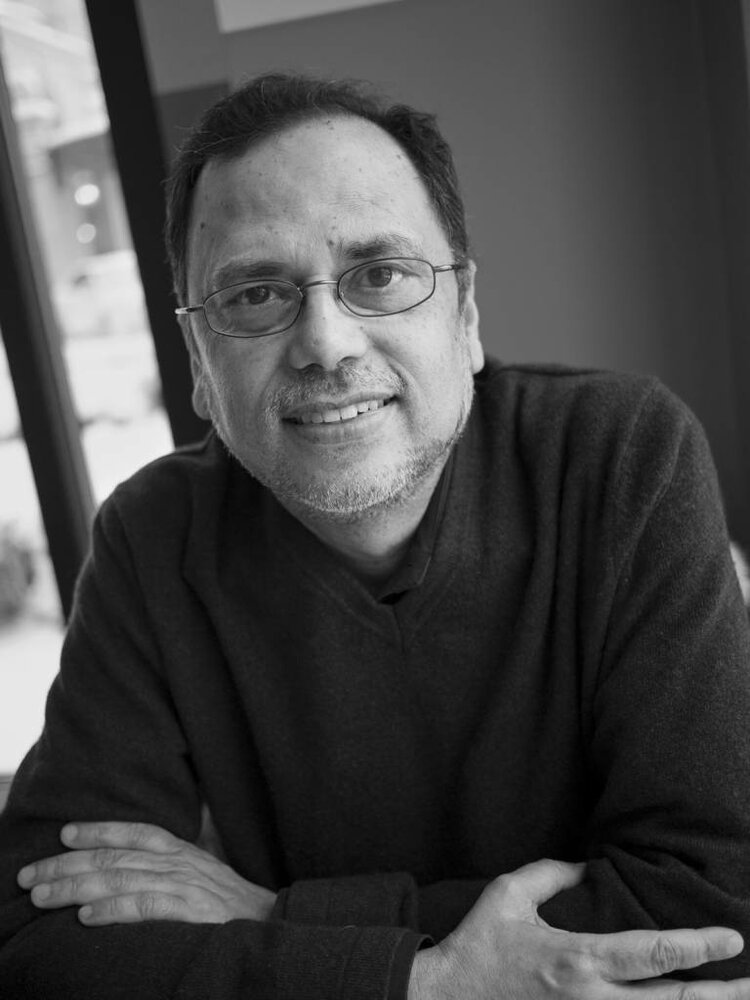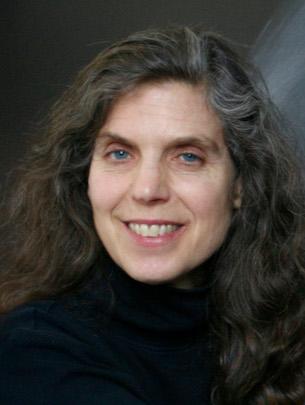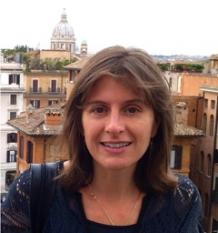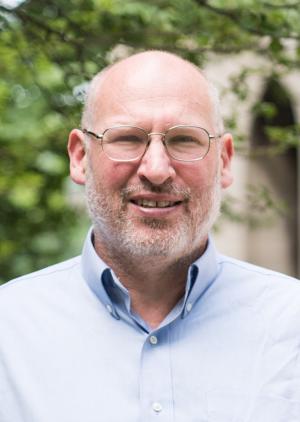
Princeton University, PhD '95
BIOGRAPHY
I am a professor in History, the College, and the Law School. My most recent book, White Fright: The Sexual Panic at the Heart of America's Racist History (Basic Book, 2020), concerns race, sex, and the civil rights movement from emancipation to the present. My next most recent book is Building the American Republic, Volume 2: A Narrative History From 1877 (Chicago, 2018). Both volumes are free in e-book form.
My work has revolved around the relationship between race, sex, and politics in the post-Emancipation South. My first book, Before Jim Crow: The Politics of Race in Postemancipation Virginia (North Carolina, 2000), analyzed the conditions that facilitated and, ultimately, undid interracial democracy in the post–Civil War South. An edited collection with Glenda E. Gilmore and Bryant Simon, Jumpin' Jim Crow: Southern Politics from Civil War to Civil Rights (Princeton, 2000), continued the theme of African American resistance to white domination from Reconstruction through the 1950s. A third book, The Age of Jim Crow: A Norton Documentary History (Norton, 2008), examines the creation and dissolution of legal segregation in America through primary sources.
My awards include fellowships from the American Council of Learned Societies, the American Academy in Berlin, the Alphonse Fletcher Foundation, and the John Simon Guggenheim Memorial Foundation.
Recent Research / Recent Publications
- White Fright: The Sexual Panic at the Heart of America's Racist History. New York: Basic Book, 2020.
- Building the American Republic, Volume 2: A Narrative History from 1877. Chicago: University of Chicago, 2018.
- "The Theology of Unionism and Anti-Unionism." Labor: Studies in Working-Class History of the Americas 14, no. 1 (Mar. 2017): 83–85.
- Senior editor for legal history, Oxford Research Encyclopedias: American History, edited by Jon Butler. Oxford: Oxford University Press, 2013–present.
- "Is Marriage a Civil Right? The Politics of Intimacy in the Jim Crow Era." In The Folly of Jim Crow: Rethinking the Segregated South, edited by Stephanie Cole and Natalie J. Ring, 176–208. College Station: Texas A&M Press, 2012.
- "The Civil Rights Movement in the South." In Speaking Out With Many Voices: Documenting American Activism in the 1960s and 1970s, edited by Heather Ann Thompson. Upper Saddle River, NJ: Prentiss Hall, 2008.
- "Fighting Hitler and Jim Crow: African Americans and World War II." The Berlin Journal (Fall 2005): 27–30.
- "The Theology of Massive Resistance." In Massive Resistance, dited by Clive Webb, 151–80. New York: Oxford University Press, 2005.
- "Sex, Segregation, and the Sacred After Brown." Journal of American History 91, no. 1 (June 2004): 119–44.
- "The Congress and White Supremacy, 1860s-1920s." In The American Congress: The Building of Democracy, edited by Julian E. Zelizer, 250–67. Boston: Houghton-Mifflin, 2004.
- "The Sexual Politics of Race in WWII America." In Mobilizing the Movement, edited by Kevin Kruse and Stephen Tuck. New York: Oxford University Press, 2011.Before Jim Crow: The Politics of Race in Post-Emancipation Virginia. Chapel Hill: University of North Carolina Press, 2000.
- "The Limits of Liberalism in the New South: The Politics of Race, Sex, and Patronage in Virginia" and "Introduction." In Jumpin' Jim Crow: Southern Politics from Civil War to Civil Rights, edited by Jane Dailey, Glenda Gilmore, and Bryant Simon, 3-6, 88–114. Princeton, NJ: Princeton University Press, 2000.
- "Deference and Violence in the Postbellum Urban South: Manners and Massacres in Danville, Virginia." Journal of Southern History 63 (August 1997): 53–90.
- Laura Kipnis's Unwanted Advances: Sexual Paranoia Comes to Campus, Christian Century (Oct. 9, 2017).
- Timothy B. Tyson's Blood Done Sign My Name. Chicago Tribune (May 30, 2004).
- Steven Hahn's A Nation Under Our Feet. Chicago Tribune (February 22, 2004).
- "The Last Time We Fought a Preemptive War in the Middle East." Huffington Post (Dec. 1, 2017).
- "Gerrymandering Is a Threat to Our Republic." Huffington Post (Oct. 3, 2017).
- "Remembering our KKK Past." Huffington Post (Sept. 12, 2017).
- "The Confederate General Who Was Erased from History." Huffington Post (Aug. 21, 2017).
- Discusses the American South's geographic boundaries with Business Insider
- Published Building the American Republic, Volume 2: A Narrative History from 1877
- Discusses Confederate Statues on NPR with James Grossman
- Named an OAH Distinguished Lecturer
- Discusses Presidential Primaries with Robin Young on Public Radio [audio, 9 mins.]
- Delivers Constitution Day Lecture on "Sex, Race, and the 14th Amendment" at Carthage College, Wisconsin [video, 86 mins.]
- "Obama's Omission." Chicago Tribune (July 30, 2008).

Affiliated Faculty, Department of English
Courtesy Appointment, Law School
Faculty Fellow, Chicago Center for Contemporary Theory
Visiting Distinguished Professor, School of Culture, History, and Language, The Australian National University, Canberra
Australian National University, PhD ' 84
BIOGRAPHY
Dipesh Chakrabarty holds a BSc (physics honors) degree from Presidency College, University of Calcutta, a postgraduate Diploma in management (considered equivalent to MBA) from the Indian Institute of Management, Calcutta, and a PhD (history) from the Australian National University. He is currently the Lawrence A. Kimpton Distinguished Service Professor in History, South Asian Languages and Civilizations, and the College. He is a faculty fellow of the Chicago Center for Contemporary Theory and, by courtesy, a faculty member in the Law School.
He is a founding member of the editorial collective of Subaltern Studies, a consulting editor of Critical Inquiry, and a founding editor of Postcolonial Studies. He has also served on the editorial boards of the American Historical Review and Public Culture.
Honors and Awards (Selected)
- Awarded the Prix Européen de l’Essai or the European Essay Prize for Après le changement climatique: penser l’histoire (Paris: Gallimard, 2023), the French translation of The Climate of History in a Planetary Age (2021)
- DLitt. (Honoris Causa), University of London (conferred at Goldsmiths), 2010
- Honorary doctorate, University of Antwerp, Belgium, 2011
- Honorary doctorate, École Normale Supérieure, 2021
- Toynbee Foundation Prize, for contributions to global history, 2014
- Tagore Memorial Prize, Government of West Bengal, 2019, for The Crises of Civilization (2018)
- Jadunath Sarkar Memorial Gold Medal, Asiatic Society of Bengal, Kolkata, 2021 for contribution to History
- Fellow, American Academy of Arts & Sciences
- Honorary Fellow, Australian Academy of the Humanities
- Fellow, British Academy
Fellowships and Visiting Professorships (Selected)
- Visiting Fellow, Max Planck Institute for Historical Sciences, 2005
- American Institute of Indian Studies Senior Fellowship, 2005–6
- Honorary Professorial Fellow, School of Historical Studies, University of Melbourne, 2007–2011
- Fellow, Wissenschaftskolleg, Berlin, 2008–9
- Fellow, Institute of Human Sciences (IWM), Vienna, 2010
- Hallsworth Visiting Professor, University of Manchester, 2010
- Dean’s Distinguished Visitor, College of Asia and Pacific, Australian National University, 2015–2027
- Visiting Professor, École Normale Supérieure, Paris, 2019
- Visiting Professor, The University of Technology, Sydney, Australia (to present)
Research Supervision
Chakrabarty’s current students in History and SALC work on a variety of topics: 20th-century Kerala, prostitution in British India, India-China relations in the 1950s, modern Islam in Bangladeshi history, youth culture in colonial Bengal, the history of modern Bengali music, state-making and representations of royalty in Nepal, the labor history of Bombay, and the energy history of Maharashtra.
Recently completed theses include work on epidemics in the British Empire, the history of the Sino-Indian boundary, the history of the idea of “popular sovereignty” in colonial India, Yunani medicine, the politics of water in Pakistan, India reform societies in nineteenth-century Britain, slavery in south India, environmental consciousness in Hindi literature, the East India Company in the eighteenth century, the Vaishnava movement in nineteenth-century Bengal, the history of the film industry in Bengal, the history of housing in Bombay in the early part of the twentieth century, comparative indigenous histories of Australia, Canada, and New Zealand, the culture-concept in Bengali history, visual aspects of the rebellion of 1857, the making of the Indian constitution, the sixties in Pakistan, low-caste politics in Bengal during the Partition, Assam tea-plantations, missionaries in Orissa, religious thought among Bengali Muslims in the nineteenth and early twentieth centuries, mass politics in Bangladesh, labor in Delhi, the history of the Anglo-Indian communities in India, the history of photo-journalism in Bengal, the evolution of the qazi and mufti in British India, and the intellectual history of Mughal India.
Recent Research / Recent Publications
- Rethinking Working-Class History: Bengal 1890–1940 (Princeton, 1989; 2000)
- Provincializing Europe: Postcolonial Thought and Historical Difference (Princeton, 2000; second edition, 2008) – translated into Italian, Spanish, French, Polish, Turkish, Korean, and Russian
- Habitations of Modernity: Essays in the Wake of Subaltern Studies (Chicago, 2002) – translated into Arabic (Kalima, 2011)
- The Calling of History: Sir Jadunath Sarkar and His Empire of Truth, c. 1900–1950 (Chicago, 2015)
- The Crises of Civilization: Exploring Global and Planetary Histories (Delhi: Oxford, 2018) with Ranajit Dasgupta, Some Aspects of Labour History of Bengal in the Nineteenth Century: Two Views (Delhi: Oxford, 2019) – translated into Bengali
- The Climate of History in a Planetary Age (Chicago, 2021; New Delhi: Primus, 2021) – Translated into German, Spanish, and French with Portuguese, Korean, and Chinese translations forthcoming
- One Planet, Many Worlds: The Climate Parallax (Brandeis, 2023) – Korean translation forthcoming
- Lectures in the Human Sciences, Institute for the Human Sciences (IWM), Vienna, 2014
- Radhakrishnan Memorial Lectures at All Souls’ College, Oxford, 2014
- Tanner Lectures in Human Values, Yale, 2015
- Mandel lectures in the Humanities, Brandeis, 2017
- History and Theory annual lecture, Harvard, 2017
- inaugural Halle Lectures in the Humanities, Halle, 2018
- William James Lecture, Harvard Divinity School, 2019
- Sixth Annual Ikeda Lecture on Peace and Harmony, Singapore Management University, Singapore, 2020
- inaugural Contributions to Indian Sociology Lecture, Indian Institute of Economic Growth, Delhi, 2021
- Golden Jubilee lecture, Centre for Studies in Social Sciences, Kolkata, 2023
- What We Have in Common in this Fragmented World,” General Conference, UNESCO, 2023
- keynote, European Congress of Theology, Heidelberg, 2024
- Smuts Memorial Lectures, University of Cambridge, March 2025
- with Shahid Amin, Subaltern Studies IX (Delhi: Oxford, 1996)
- with Carol Breckenridge, Homi Bhabha, and Sheldon Pollock, Cosmopolitanism (Duke, 2000)
- with Rochona Majumdar and Andrew Sartori, From the Colonial to the Postcolonial: India and Pakistan in Transition (Delhi: Oxford, 2007)
- with Bain Attwood and Claudio Lomnitz, “The Public Life of History,” a special issue of Public Culture (2008)
- with Henning Trueper and Sanjay Subrahmanyam, Historical Teleologies in the Modern World (Bloomsbury, 2015)
- Itihasher janajibon o anyanyo probondho [The Public Life of History and Other Essays] (Kolkata: Ananda, 2011)
- Monorather Thikana [Where the Mind Travels], ed. Sanjib Mukhopadhyay (Kolkata: Anustup, 2018) – Shortlisted for the Ananda literary prize in Calcutta in 2019
- Bondhur chithi Bondhuke [Letters Between Friends] (Kolkata: Anustup, 2019) – correspondence between Dipesh Chakrabarty and the deceased Bengali writer Raghab Bandyopadhyay, 2003–2016
- Smriti, Satta, Songlap [Memories, Identities, and Conversations] (Calcutta: Nirjhor Publications, 2023)
- “The Climate History: Four Theses,” Critical Inquiry (Winter 2009): 197–222. Translated as “Le Climat de L'Histoire: Quatre Theses.” La Revue Internationale 5 (January-February 2010): 22–31. Also carried in Eurozine (October 30, 2009), and translated into German, Spanish, Hungarian, Malayalam, Korean, and Chinese.
- “From Civilization to Globalization: The West as a Signifier in Indian Modernity,” Inter–Asian Cultural Studies 13, no. 1 (2012). French translation published in La Revue des Libres (January 31, 2012).
- “Postcolonial Studies and the Challenge of Climate Change,” New Literary History 43, no. 1 (Winter 2012): 1–18.
- “Friendships in the Shadow of Empire: Rabindranath Tagore’s Reception in Chicago, c. 1913–1932,” Modern Asian Studies 48, no. 5 (September 2014): 1161–1187.
- “Climate and Capital: On Conjoined Histories,” Critical Inquiry (Fall 2014): 1–23.
- “The Human Significance of the Anthropocene,” in Reset Modernity! ed. Bruno Latour (Cambridge, MA: MIT Press, 2016).
- “The Politics of Climate Change Is More Than the Politics of Capitalism,” Theory, Culture, & Society 34, nos. 2-3 (March-May 2017): 25–37.
- “Between World History and Earth History: Anthropocene Time,” History and Theory (March 2018): 5–32.
- “The Planet: An Emergent Humanist Category,” Critical Inquiry 46, no. 1 (Autumn 2019): 1–31.
- “The Human Sciences and Climate Change: A Crisis of Anthropocentrism,” Science and Culture 86, nos. 1–2 (January–February, 2020): 46–8.
- with Bruno Latour, “Conflicts of Planetary Proportions – A Conversation,” Journal of the Philosophy of History 14 (2020): 419-454.
- “Planetary Humanities: Straddling the Postcolonial/Decolonial Divide,” Daedalus 151, no.3 (Summer 2022): 222-233.
- Saurabh Dube, Ajay Skaria, and Sanjay Seth, eds., Dipesh Chakrabarty and the Global South: Subaltern Studies, Postcolonial Perspectives, and the Anthropocene (Routledge, 2020)
- special issue, Práticas da História, No. 11 (2020), marking the twentieth year since the publication of Provincializing Europe
- Ahmed Kamal, ed., Somoyer Kuyashay [In the Mists of TIme] (Dhaka: University Press, 2023)
“Tagore in Our Times and His” (Inaugural Lecture, The Tagore Program, University of California, Berkeley, February 22, 2020)
“The Planet: An Emergent Matter of Spiritual Concern?” (William James Lecture, Harvard Divinity School, May 1, 2019)
The Fifth Annual Mandel Lectures in the Humanities (Brandeis University, March 13, 14, and 16, 2017)
“Talk on Climate Change and the Humanities” (talk presented at Centre for Policy Research, New Delhi, March 1, 2016)
Tanner Lectures on Human Values (Yale University, February 18–20, 2015)
- Lecture 1: “Climate Change as Epochal Consciousness”
- Lecture 2: “Decentering the Human? Gaia”
- Roundtable: “The Human Condition in the Anthropocene: Roundtable Discussion”
“Rethinking Working Class: Postcolonial Perspectives on a Revolutionary Concept” (Rosa-Luxemburg-Stiftung, October 29, 2014)
30 Years of Elementary Aspects of Peasant Insurgency in Colonial India, Centre for the Study of Developing Societies, Feb. 13, 2013
The Anthropocene Project: An Opening, Haus der Kulturen der Welt, Berlin, Jan. 10–13, 2013
“The Calling of History: Sir Jadunath Sarkar and the Birth of Historical Research in India” (paper presented at the annual B.N. Ganguli Memorial Lecture series at the Centre for the Study of Developing Societies, Delhi, India, October 30, 2012)

Yale University, PhD '90
BIOGRAPHY
Amy Dru Stanley is a historian of the United States, with particular interest in law, capitalism, freedom and unfreedom, human rights, the relationship between the household and economic life, and the historical experience of moral problems. Her work has appeared in scholarly books and journals, as well as in the New York Times, the Washington Post, the Nation, Dissent, Slate, and Jacobin. She has received the Quantrell Award for Excellence in Undergraduate Teaching and the Faculty Award for Excellence in Graduate Teaching and Mentoring. In 2018, she was the jury chair for the Pulitzer Prize in history.
Recent Research / Recent Publications
The Antislavery Ethic and the Spirit of Commerce: An American History of Human Rights. Cambridge, MA: Harvard University Press, forthcoming.
From Bondage to Contract: Wage Labor, Marriage and the Market in the Age of Slave Emancipation. Cambridge: Cambridge University Press, 1998.
- Frederick Jackson Turner Prize, 1999. (For the best first book in US History, awarded by the Organization of American Historians.)
- Morris D. Forkosch Award, 1999. (For the best book in intellectual history.)
- Avery O. Craven Award, 1999. (For the best book on the era of the Civil War and Reconstruction, awarded by the Organization of American Historians.)
- Frederick Douglass Prize, 1999, honorable mention. (For the best book on the history of slavery.)
- “The Free Sea: An Antislavery Idea of Human Rights,” in Cambridge History of Human Rights, edited by Jennifer Pitts and Daniel Edelstein, 2025.
- "The Sovereign Market and Sex Difference: Human Rights in America." In American Capitalism: New Histories, edited by Sven Beckert and Christine Desan. New York: Columbia University Press, 2018.
- "Histories of Capitalism and Sex Difference." Journal of the Early Republic 36, no. 2 (Sum. 2016).
- "Slave Emancipation and the Revolutionizing of Human Rights." In The World the Civil War Made, edited by Greg Downs and Kate Masur. Chapel Hill: University of North Carolina Press, 2015.
- “Contract.” In Keywords for American Cultural Studies, 2nd ed., edited by B. Burgett and G. Hendler. New York: New York University Press, 2014.
- "Slave Breeding and Free Love: An Antebellum Argument over Slavery, Capitalism, and Personhood." In Capitalism Takes Command, edited by Michael Zakim and Gary Kornblith. Chicago: University of Chicago Press, 2012.
- "Instead of Waiting for the Thirteenth Amendment: The War Power, Slave Marriage, and Inviolate Human Rights." American Historical Review 115, no. 3 (June 2010).
- "When We Were Young." In Wayne F. Miller: Photographs 1942–1958, edited by Stephen Daiter. Brooklyn: Powerhouse Books, 2008.
- "Wages, Sin, and Slavery: Some Thoughts on Free Will and Commodity Relations." Journal of the Early Republic 24 (Sum. 2004).
- "Dominion and Dependence in the Law of Freedom and Slavery." Law & Social Inquiry 28, no. 3 (Aut. 2003).
- "Marriage, Property, and Ideals of Class." In Blackwell's Companion to American Women's History, edited by Nancy Hewitt. Oxford: Blackwell Press, 2002.
- "The Right to Possess All the Faculties that God Has Given: Possessive Individualism, Slave Women, and Abolitionist Thought." In Moral Problems in American Life, edited by Lewis Perry and Karen Halttunnen. Ithaca, NY: Cornell University Press, 1999.
- "'We Did Not Separate Man and Wife, But All Had to Work': Freedom and Dependence in the Aftermath of Slave Emancipation" in Terms of Labor: Slavery, Serfdom, and Free Labor, edited by Stanley Engerman, Stanford University Press, 1999.
- "Home Life and the Morality of the Marketplace: Slavery and Freedom, Women and Men." In The Market Revolution in America, edited by Melvyn Stokes. Charlottesville: University of Virginia Press, 1996.
- "Beggars Can't Be Choosers: Compulsion and Contract in Postbellum America." Journal of American History 78, no. 4 (Mar. 1992).
- "Conjugal Bonds and Wage Labor: Rights of Contract in the Age of Emancipation." Journal of American History 75, no. 2 (Sept. 1988).
- Writes "Freedom for Sale" for Dissent Magazine on academic freedom and American history teaching
- Quoted in the Globe and Mail article, "Donald Trump has taken aim at what he calls the ‘woke’ view of American history"
- Quoted in the NYT article, "Juneteenth Reminds Us to Think About Economic Freedom, Not Just Legal Liberty"
- Quoted in the Washington Post on polarization, the history of race in the US, and the GOP
- Comments on the Florida Board of Education's guidelines on teaching Black history in Newsweek
- Co-writes with Craig Becker for the New York Times on Amazon's opposition to mail-in ballot unionization votes
- Writes for the Washington Post on the Commerce Clause and pandemic liability protection for businesses
- Quoted in the Burlington Free Press on the history of the Confederate Flag
- Quoted in the Pittsburgh Post-Gazette on the meaning of Chicago 1968
- Chairs 2018 Pulitzer Prize for History Jury
- Writes for Slate on the abolition of slavery, theatergoing, and the right to happiness
- Named an OAH Distinguished Lecturer
- Kyle Volk, PhD'08, Praises Stanley's Scholarship on the Oxford University Press blog
- Participates on Yale Panel on the 14th Amendment
- Amy Dru Stanley and Jonathan Levy Embark on New Study of the Economy
- Coorganizes "Human Trafficking, Labor Migration, and Migration Control in Comparative Historical Perspective" conference, Pozen Family Center for Human Rights
- Writes for the New York Times Opinionator blog on the Civil War Enlistment Act

Harvard University, PhD '99
BIOGRAPHY
I am a historian of inequality and its persistence. I specialize in the study of Brazil and Latin America, and focus particularly on informality, cities, citizenship, law, migration, race, slavery and its afterlives.
My first book, A Poverty of Rights (Stanford, 2008), examines how weak citizenship rights and residential informality came to define urban poverty, popular social struggles, and the political dynamics of inequality in modern Brazil. It received book awards from the Social Science History Association, the Urban History Association, the Conference on Latin American History, and the Brazilian Studies Association.
A volume I coedited with Bryan McCann and Javier Auyero, Cities from Scratch (Duke, 2014), explores the many ways in which poverty and informality have shaped the Latin American urban experience. My essay, "A Century in the Present Tense," explores the intellectual history of the informal city, arguing that slums and shantytowns are dynamic historical phenomena in their own right rather than perpetual symptoms of current crises. In various other essays and ongoing research, I have focused on informality's relationship to developmentalism and political liberalism, slavery, racial inequality in law and urban space, criminal law, internal migrations, and the relationship between the urban poor and Brazil’s political left.
Along with Brazilian historian Keila Grinberg, I have edited a volume entitled The Boundaries of Freedom, which brings together essays by leading Brazilian and Brazilianist scholars of slavery and its afterlives. My own essay, “Slavery, Freedom and the Relational City,” focuses on how unfreedoms born of slavery continued to bind urban free and freedpeople during Brazil’s age of abolition.
My current book, Intimate Inequalities: Urbanism, Slavery, and Bounded Freedom in a Brazilian City, explores the historical co-evolution of urbanism and informality. The book is based in Recife, Brazil, a northeastern city that came to be seen as both the capital of Brazilian underdevelopment and the incubator of some of the country's most innovative social and cultural movements. Recife originated as a slave city, and the social and power relations that had sustained slavery continued to structure it long after abolition in 1888. Like many other cities across the globe, Recife evolved as a place where modern technologies, economies, and liberal institutions coexisted with and depended upon urban informality. Formal institutions and economies were embedded in an essentially relational city, in which personal connections mediated economic and political life and deep inequality structured vital (and often violent) intimate interdependencies. In the twentieth century, relational power proved remarkably adaptable, inhabiting liberal institutions and radical social movements, structuring "political society," and doing much to explain both social mobility and inequality's resilience. In exposing the microhistory of this phenomenon in Recife, I explore the emergence of urban informality as part and parcel of modern governance and bring into a focus a paradigm of urban modernity that shapes city life across the globe.
Other ongoing projects focus on the "Rights to the City" movement in law, political philosophy, and practice; and the global history of urban informality through a collaborative project entitled "La Ville informelle au XXe siècle: politiques urbaines et administration des populations."
At Chicago, I am part of the Faculty Advisory Committees for the Mansueto Institute for Urban Innovation, the Art and Architecture Committee and the Latin America Faculty Working Group; and I am a Faculty Affiliate at the Center for Latin American Studies and the Center for the Study of Race, Politics, and Culture. Outside of the University, I serve on the editorial boards of Past & Present and the Journal of Latin American Studies, as well as the international Advisory Committee for the Centro de Estudos da Metrópole in São Paulo and the board of the Urban History Association. My teaching focuses both on my core research interests and on the larger histories of Brazil, Latin America, cities, and social inequality. Before coming to Chicago, I taught at Amherst College and Northwestern University.
Recent Research / Recent Publications
- The Boundaries of Freedom: Slavery, Abolition, and the Making of Modern Brazil, co-edited with Keila Grinberg. Cambridge University Press, 2022.
- Cities from Scratch: Poverty and Informality in Urban Latin America, co-edited with Bryan McCann, and Javier Auyero. Durham, NC: Duke University Press, 2014.
- A Poverty of Rights: Citizenship and Inequality in Twentieth-Century Rio de Janeiro. Stanford: Stanford University Press, 2008 (paperback, 2011).
- The Boundaries of Freedom: Slavery, Abolition, and the Making of Modern Brazil, co-edited with Keila Grinberg, in production, Cambridge University Press.
- “Historicizing Informal Governance in 20th Century Brazil,” Contemporary Social Science, May 2021.
- "A ética do silêncio racial no contexto urbano: políticas públicas e desigualdade social no Recife, 1900-1940," Anais do Museu Paulista, 28 (2020): 1-45.
- “From the Mocambo to the Favela: Statistics and Social Policy in Brazil’s Informal Cities,” Histoire et Mesure 34, no. 1 (2019): 15-40.
- “Favelas and Politics in Brazil, 1890-1960,” in William Beezley, ed., Oxford Research Encyclopedia, Latin American History, Oxford University Press, 2019.
- "Urban Informality and the Paradoxes of Developmental State Building," in State and Nation Making in Latin America and Spain: The Rise and Fall of the Developmental State, edited by Miguel Centeno and Agustín Ferraro. Cambridge: Cambridge University Press, 2018.
- "Ethos and Pathos in Millennial Brazil." Latin American Research Review 53, no. 2 (June 2018): 394–402.
- "Law, Silence and Racialized Inequalities in the History of Afro-Brazil," with Keila Grinberg and Hebe Mattos. In Afro-Latin American Studies: An Introduction, edited by Alejandro de la Fuente and George Reid Andrews. Cambridge: Cambridge University Press, 2018, 130–78.
- "Beyond Insurgency and Dystopia: The Role of Informality in Brazil’s Twentieth-Century Urban Formation." In Public Goods versus Economic Interests: Global Perspectives on the History of Squatting, edited by Freia Anders and Alexander Sedlmaier. New York: Routledge, 2016, 122–49.
- "The Red Menace Reconsidered: A Forgotten History of Communist Mobilization in Rio's Favelas, 1945–1964." Hispanic American Historical Review 94, no. 1 (2014): 1–33.
- "Urban History." In Oxford Bibliographies Online (2013)
- "Democracy, Thuggery, and the Grassroots: Antoine Magarinos Torres and the União dos Trabalhadores Favelados in the Age of Carioca Populism." Nuevo Mundo–Mundos Nuevos, Colloquium: "Repensando los populismos en América Latina," February 2013.
- "Partindo a cidade maravilhosa" (Dividing the Marvelous City). In Quase cidadão: histórias e antropologias da pós-emancipação no Brasil, edited by Flávio dos Santos Gomes and Olívia Maria Gomes da Cunha. Rio de Janeiro: Editora da Fundação Getúlio Vargas, 2007, 419–50.
- "Direitos por lei, ou leis por direito?" (Rights by Law or Laws by Right?). In Direitos e justiças no Brasil: Histórias plurais, edited by Silvia Lara and Joseli Mendonça, 417–56. São Paulo: UNICAMP Press, 2006.
- "Slandering Citizens: Insults, Class and Social Legitimacy in Rio de Janeiro's Criminal Courts." In Honor, Status, and the Law in Modern Latin America, edited by Sueann Caulfield, Lara Putnam, and Sarah Chambers, 176–200. Durham, NC: Duke University Press, 2005.
- "Quase Pretos de Tão Pobres? Race, Class, and Criminal Justice in Rio de Janeiro." Latin American Research Review 39, no. 1 (February 2004): 31–59.
- Profiled on BBS Brasil on teaching Brazilian history
- Part of the core team of La Ville informelle au XXe siècle
- Discusses contemporary urban studies with Marco Garrido, Dialogo, Winter 2018
- Discusses Urban Poverty in Latin America [video, 3 minutes]

Yale University, PhD '08
BIOGRAPHY
Johanna S. Ransmeier 任思梅 is a social and legal historian of modern China. Her current research investigates the expansion of legal literacy and the development of a Chinese legal imagination during times of revolutionary change. In this project, she asks what happens when citizens’ legitimate expectations of the law get ahead of the ability of legal institutions to deliver on the promise of new legislation or legal innovations? What makes the law a site of both soaring aspiration and crushing disappointment? She also studies the surprising ways crime and the law intersect with family life in China. Her first book Sold People: Traffickers and Family Life in North China (Harvard University Press, 2017) exposed the transactional foundations of traditional family structures and the role of human trafficking in late Qing and Republican China. She is a fellow with the National Committee on US China Relations Public Intellectuals Program (Cohort V) and was a visiting research fellow at the Institute of Modern History at Academia Sinica in Taiwan. Before joining the University of Chicago, she was a member of the department of History and Classical Studies at McGill University. She currently serves as co-chair of the faculty board of the Pozen Family Center for Human Rights.
Recent Research / Recent Publications
- Receives 2022 Quantrell Award
- Named a fellow in the Public Intellectuals Program of the National Committee on US-China Relations
- Coorganizes "Human Trafficking, Labor Migration, and Migration Control in Comparative Historical Perspective" conference, Pozen Family Center for Human Rights
- Discusses Chinese Human Trafficking and Slavery during the Late Qing and Republican Periods [video, 5 minutes]

University of Michigan, PhD'96
Chair, Department of Classics (2017-2020, 2021-2024)
Faculty Member, Renaissance Studies
Faculty Member, Institute on the Formation of Knowledge
Recent Research / Recent Publications
- Appointed Extraordinary Professor in the Department of Ancient Studies, Stellenbosch University (January 2024 – December 2026)
- Elected member of the American Academy of Sciences and Letters (2024)
- Visiting Professor, Faculté de Droit, Université Panthéon-Assas – Paris II (March 2022)
- Published edited volume, A Cultural History of Ideas in Classical Antiquity (2022) with Thomas Habinek and Giulia Sissa
- Published edited volume, Roman and Local Citizenship in the Long Second Century (2021), with Myles LAvan
- Published edited volume, The New Late Antiquity: Intellectual Profiles (2021), with Marco Formisano
- Published edited volume, The Discovery of the Fact (2020), with William P. Sullivan, PhD'20 in Classics and History

Harvard University, PhD' 90
BIOGRAPHY
I am a historian of Britain and its Empire, of comparative revolutions, comparative empires, and of northern Europe more broadly. I am both a deeply committed archival historian and a scholar who believes profoundly that historians should engage with the social sciences. My first book, Protestantism and Patriotism, was an entangled and comparative study of English and Dutch politics, culture, and society in the mid-seventeenth century. I traced the decline of apocalyptic thinking and the rise of notions of political economy in England and the Dutch Republic. My second major monograph, 1688: The First Modern Revolution, offered both a major revisionist account of England's Glorious Revolution and a reappraisal of the literature on revolutions more broadly. I showed that far from being an unrevolutionary revolution, the Revolution of 1688 radically transformed English state and society. The revolution, I suggest, can only be understood by placing it in a European and global context. Since 1688 was a radical revolution, I suggest, it is imperative to rethink the nature of revolutions since so much of that literature assumed that the later eighteenth-century French Revolution was the first modern revolution. My third monograph, The Heart of the Declaration, argued that by placing the American Revolution and its seminal document, the Declaration of Independence, in an imperial rather than proto-national context it becomes clear that Americans broke away from Britain not because they resented the imperial state but because they wanted a different kind of state—one that would actively promote social and economic prosperity and equality.
I am currently engaged in a number of research projects. For the past decade I have been working on a Global History of the British Empire, ca. 1650–1784. This book, based on research in a wide range of European, North American, and West Indian archives, insists that the British imperial state was just as institutional strong if structurally distinct, from its rivals. Throughout the empire Britons debated and fought over the kind of imperial state they wanted. Some wanted to focus on a political economy that privileged colonial production over one that emphasized colonial consumption; some wanted an empire that favored England, while others thought the empire should be organized as a confederation; some thought chattel slavery was essential to the prosperity of the empire while others decried cattle slavery as economically and morally deleterious; some thought the empire should protect and promote the development of indigenous peoples, while others thought indigenous peoples were a barrier to imperial development. I insist that accounts of the colonies that focus on the binary relationship between a particular colony or set of colonies and Britain will necessarily misunderstand that relationship. The British Empire can only be understood as a global phenomenon. It is essential to think the empire whole. I am working on a second monograph, Partners in Revolution, that compares the Irish Revolution of 1782 and the American Revolution. I highlight the social, cultural, and ideological similarities between the Irish and American situations. The book explains why Americans severed ties with the British Empire and the Irish did not. I suggest that one of the consequences of the abortive Irish Revolution was that the re-emergence of confessional divisions in Ireland. Finally, I am working on a set of essays (maybe a book) with James Robinson of Harris Public Policy, trying to explain British divergence: why was it that Britain, and not China, India, France, or the Dutch Republic, became the first industrial nation? Why did the British state take the distinctive form that it did?
My research has been supported over the years with fellowships from the Harvard Society of Fellows, the ACLS, the Guggenheim Foundation, the Dorothy and Lewis B. Cullman Center, the Institute for Advanced Studies at Princeton, the Woodrow Wilson Foundation, and the American Philosophical Society. I have been a visitor at All Souls College (Oxford), EHESS (Paris), IMT (Lucca) and the University of Warwick.
I am deeply committed to both undergraduate and graduate education. I am happy to supervise senior theses and doctoral dissertations on any topic in British history, the history of the British Empire, Atlantic history, Dutch history, political economy, revolutions, comparative empires, history of European ideas, seventeenth- and eighteenth-century religious history, and the cultural history of seventeenth- and eighteenth-century Europe.
I have supervised over twenty doctoral dissertations covering a wide range of topics. Some topics have included the origins of humanitarianism in seventeenth- and eighteenth-century Europe, the rise of the Patriot party in the eighteenth-century British Empire, the emergence of associational life in the British Empire, the East India Company and the emergence of British India, politics of the navy and the British Empire, the transformation of British India in the late eighteenth century, the Anglo-French-Indian struggle for the Ohio Valley, British imperial indigenous policy in Scotland, North America, and Bengal, the high church reaction to the Revolution of 1688, the remaking of the Church of England after the Act of Toleration, the Scottish Kirk in the early eighteenth century, the rise of opera in Britain, the making of the English Caribbean in the late seventeenth century, British monetary policy in the late seventeenth and eighteenth centuries, the rise of slave labor in the British Empire, Leisler's Rebellion and its consequences, British party politics in the early eighteenth century, the persistence of Catholicism in the British Empire, and many more.
I am a co-convenor of the History and Social Sciences and the Empires and the Atlantics forums.
Recent Research / Recent Publications
The Heart of the Declaration: The Founders’ Case for Activist Government. New Haven, CT: Yale University Press,, 2016.
co-edited with Peter Lake. The Politics of the Public Sphere in Early Modern England: Public Persons and Popular Spirits. Manchester: Manchester University Press, 2012
1688:The First Modern Revolution. New Haven, CT: Yale University Press, 2011.
- Morris D. Forkosch Prize, American Historical Association
- Gustav Ranis International Book Prize, Yale MacMillan Center
- Bronze Medal, Independent Publisher Book Awards
England’s Glorious Revolution 1688–1689: A Brief History with Documents. Boston: Bedford/St. Martin's, 2006
co-edited with Alan Houston. A Nation Transformed: England after the Restoration. Cambridge: Cambridge University Press, 2001.
Protestantism and Patriotism: Ideologies and the Making of English Foreign Policy, 1650–1668. Cambridge: Cambridge University Press, 1996.
-
Co-edits volume The Politics of the Public Sphere in Early Modern England (Manchester University Press, 2019)
-
Discusses "How the Radical Aims of the American Revolutionaries Are Relevant Today," Valdai Discussion Club, June 8, 2017 [video, 94 mins]
-
Delivers "The Founders' Case for Strong Government," George Washington Forum, Ohio University, February 23, 2017 [video, 81 mins]